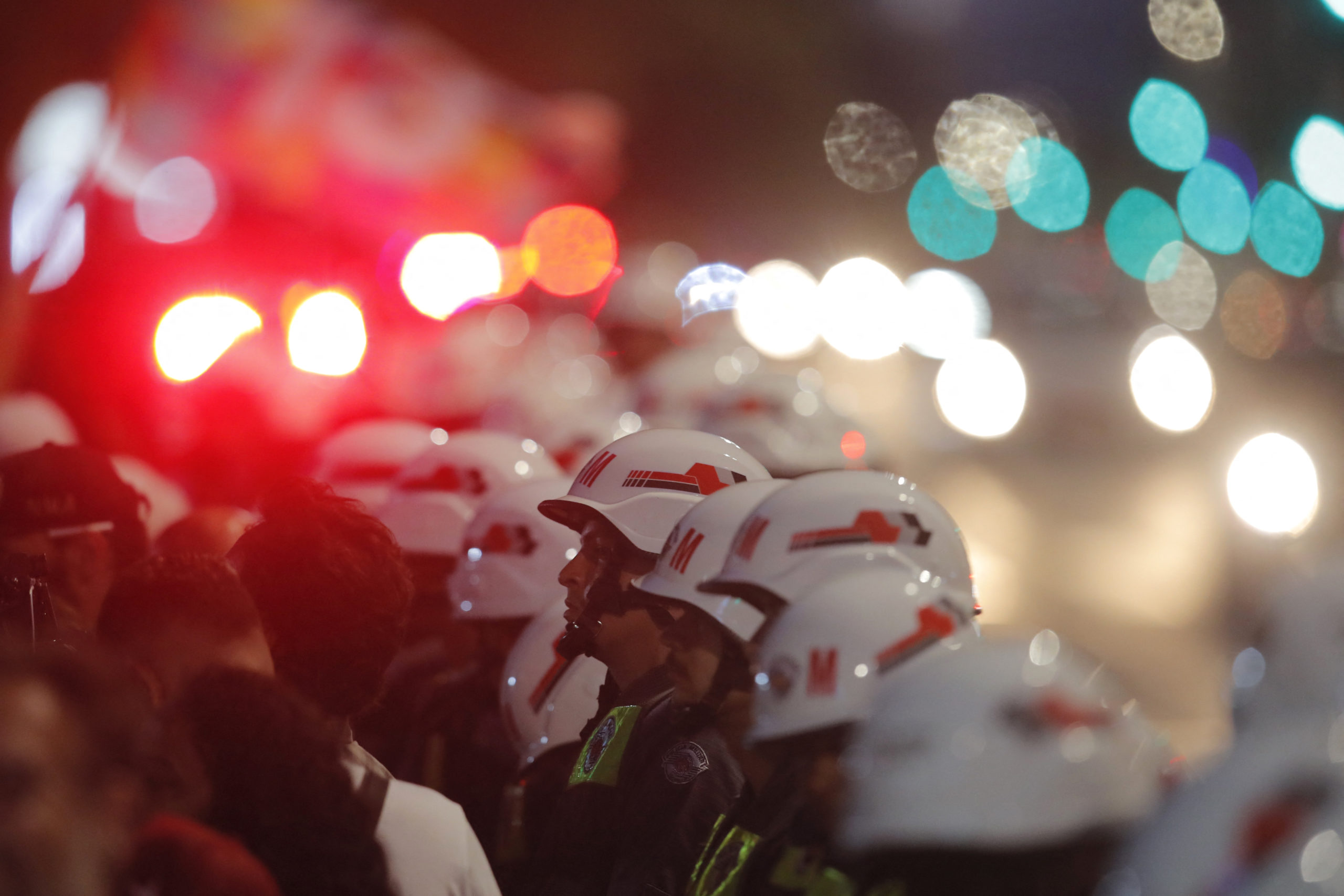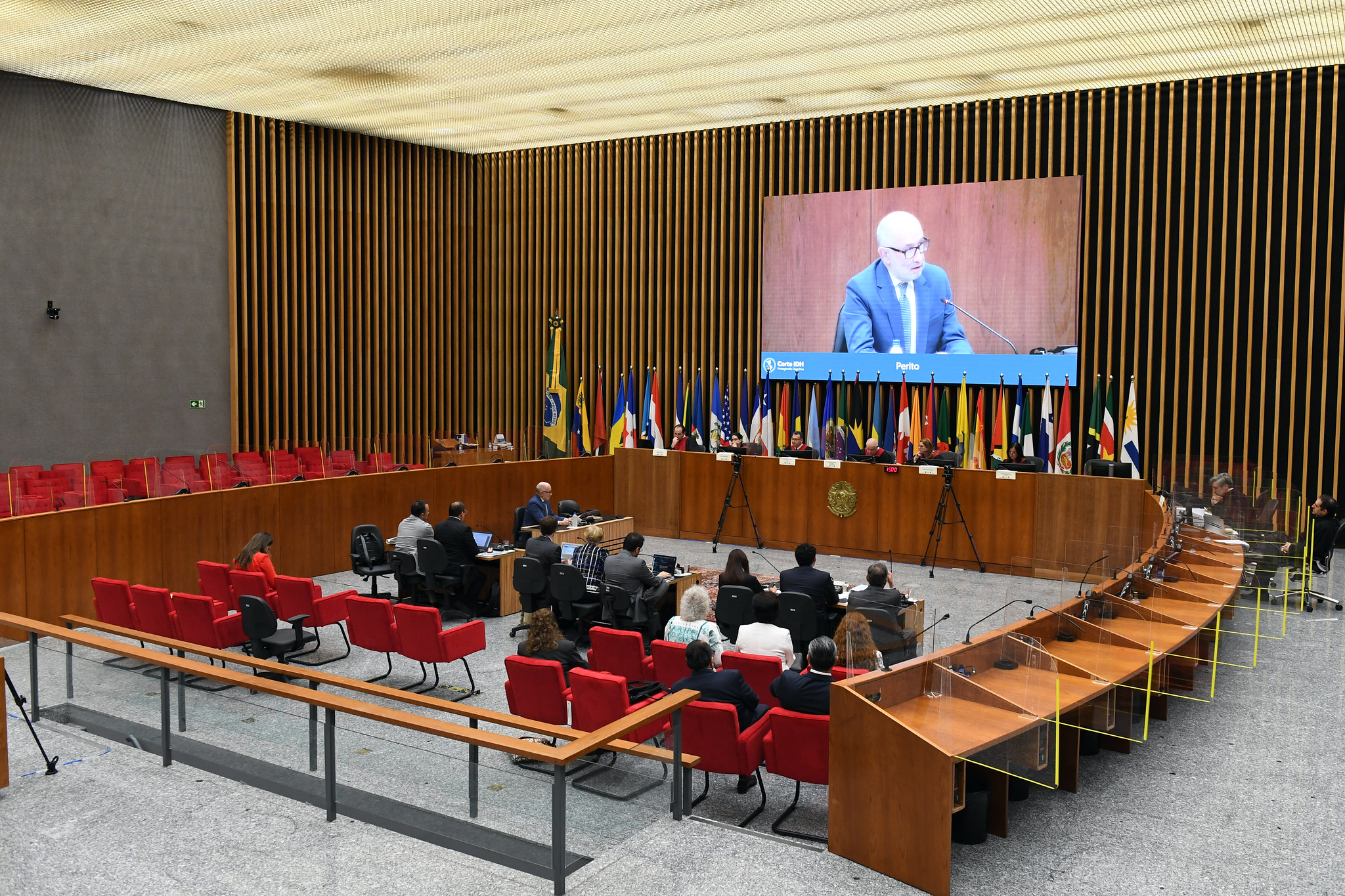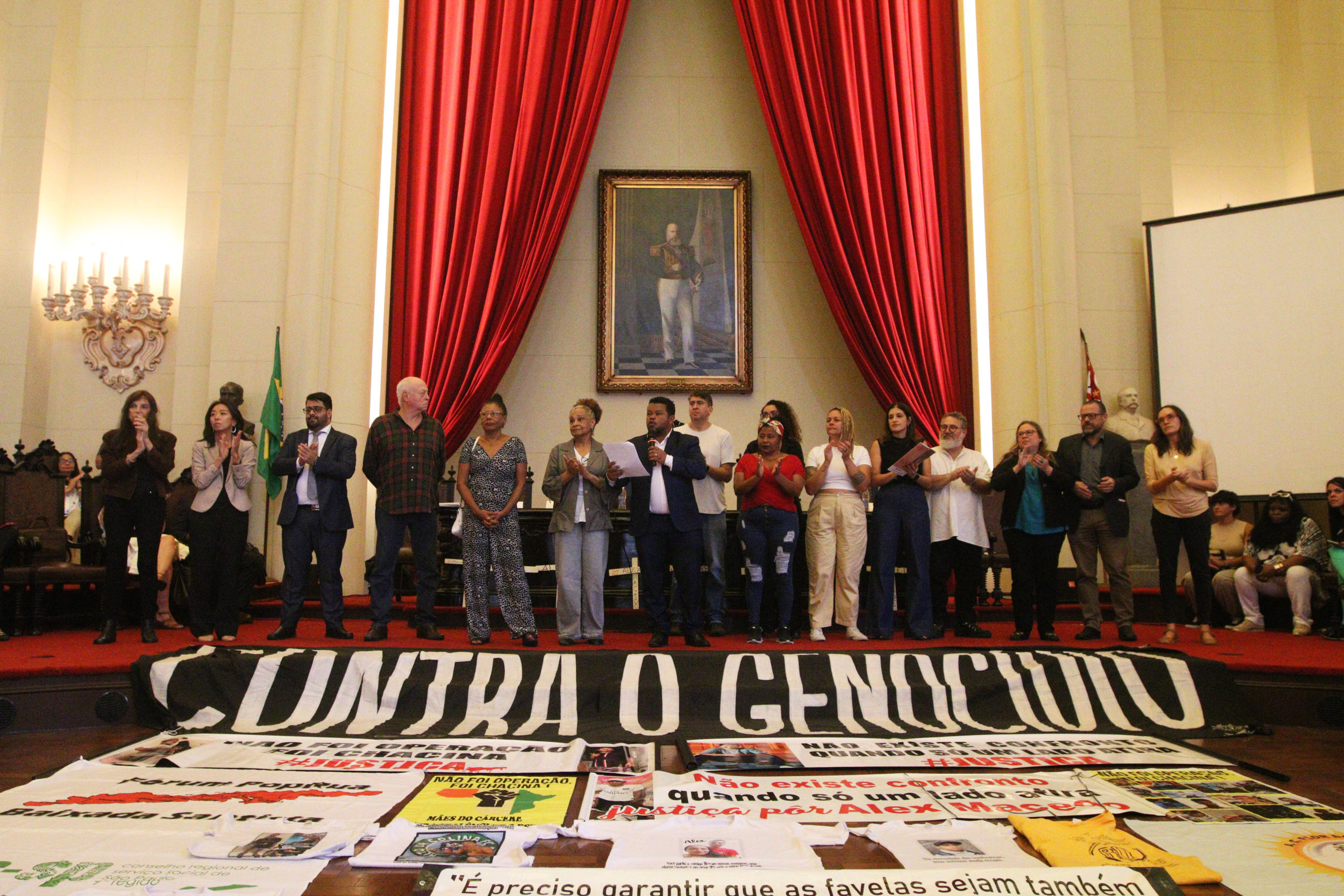Conectas participates in historic Supreme Court session
Ruling on the case questioning embryonic stem cell research is considered by justices and participants one of the most important in the history of the Brazilian Supreme Court
16/03/2008
Ruling on the case questioning embryonic
stem cell research is considered by justices and participants one of the
most important in the history of the Brazilian Supreme Court
On
March 5, Conectas Human Rights participated, also representing the
Human Rights Center (CDH), in the Supreme Court (STF) session in
Brasilia to rule on the case ADI 3510
(in Portuguese) calling into question the constitutionality of article 5
of Brazil’s Biosecurity Law that permits scientific research with
embryonic stem cells for medical purposes.
|
|
A
Conectas was one of the organizations granted amicus curiae status for
the case and, as such, had the right to make an oral submission during
the session (read the full amicus brief here, in portuguese) to present its arguments in favor of medical research.
The
session, which lasted approximately 5 hours, was adjourned after
Justice Menezes Direito formally requested more time to study the
matter. The debate has been playing out in the STF for three years, but
the judgment of the case now has two votes in favor of the
constitutionality of the Biosecurity Law: the presiding judge in the
case, Justice Carlos Ayres Britto, and the current Chief Justice, Ellen
Gracie, who advanced her vote (read both votes in full here,
in portuguese). “This is the most important case in the entire history
of the court, since it involves the right to life”,explained Justice
Celso de Mello in an interview with a local newspaper a week before the
session.
The session
After a
presentation of the case by Justice Carlos Ayres Britto, the court was
addressed by Brazilian Attorney General Antônio Fernando de Souza,
representing the Office of the Attorney General, which was responsible
for filing the motion. De Souza argued that since life begins at
fertilization, an embryo can be considered human and should therefore be
protected. Also defending the unconstitutionality of the law, the first
amicus curiae, represented by the lawyer Ives Gandra Martins on behalf
of the National Conference of Brazilian Bishops (CNBB), condemned the
use of embryos in research.
the opposing camp, the
Brazilian Solicitor General José Antônio Dias Toffoli was the first to
speak in defense of the constitutionality of the Biosecurity Law. He
held that an embryo is not the same as a fetus and likening one to a
human being would force numerous other issues to be reviewed, such as,
for example, how to guarantee life for all frozen embryos. Leonardo
Mundim spoke on behalf of the National Congress and emphasized that more
than 90% of the embryos frozen at fertilization clinics are disposed of
and failure to use them in research could be a setback for Brazilian
science.
|
A packed plenary session. People with disabilities and degenerative diseases closely followed the judgment |
The
spokesperson for Conectas Human Rights and the Human Rights Center
(CDH), Oscar Vilhena Vieira, made his presentation in defense of the
constitutionality of this research, arguing that an embryo cannot be
legally equated with a person. He pointed out that the law is very clear
in only permitting research with non-viable embryos that have no chance
of ever coming to term, noting that their use in medical research will
help find cures to preserve the life and human dignity of people
suffering diseases. He also stressed that at no point does the
Brazilian Constitution address the right to life before birth. What it
does protect is the right to life of Brazilians ‘by birth’, i.e. those
already born, which, he claimed, invalidates the argument for the
unconstitutionality of embryonic stem cell research (view the full oral presentation here).
The
last lawyer to address the court was Luís Roberto Barroso, on behalf of
the Pro-Life Movement (Movitae) and the Bioethics, Human Rights and
Gender Institute (Anis), who stressed that Brazilian citizens have the
right to choose whether to donate their embryos for research purposes
and that the STF has the duty to allow them to make this choice. He also
raised the point that the fate of these embryos – disposal – already
sealed and their use by medical science will help people who rely on
this research to give them some hope of recovery.
After
the amicus curiae presentations to the court, the presiding judge in
the case, Justice Carlos Ayres Britto, read out his vote before the
plenary session. He ruled that the article in question is constitutional
and that the law properly regulates the sector. He based his decision
on the fact that the Brazilian Constitution protects life the
moment of birth, making a reference to the ?biographical? human being,
with established bonds and a history, and claiming that embryos cannot
justifiably be considered citizens ? only after birth does a human being
acquire legal and civil status. In a long delivery that lasted more
than an hour, the justice also stressed that the Biosecurity Law
protects embryos by prohibiting their commercialization, by only
permitting research with non-viable embryos and by requiring the prior
consent of donors for use in research.
After the presiding
judge’s vote, Justice Menezes Direito formally requested an adjournment,
claiming that he needed more time to decide on such a complex issue.
Even though the final outcome would now be postponed, Chief Justice
Ellen Gracie, who was presiding over the session, advanced her vote.
Addressing the court, she said she saw nothing unconstitutional about
the law and ruled in line with Justice Britto. The Chief Justice urged
Justice Direito to be brief in his analysis so the court can reconvene
shortly to complete its ruling, since research has been put on hold as a
result of the case. She also reminded those present that the court is
overburdened, with more than 580 cases awaiting judgment, and that the
stem cell case has already been pending in the court for three years.




